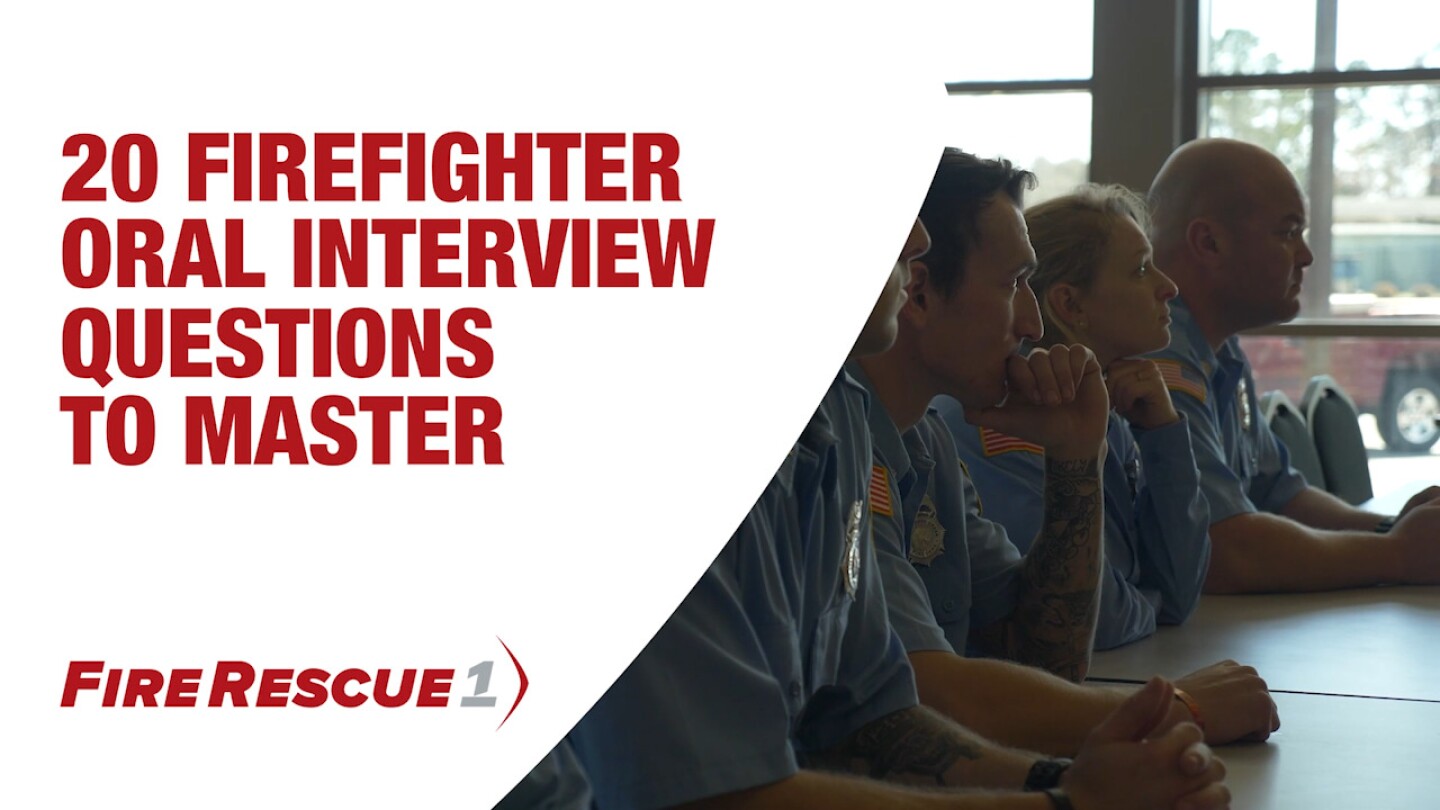Leadership
Leadership is one of the critical components of a successful crew, fire department and the fire service as a whole. The FireRescue1 Leadership resource page shares a variety of news, original analysis, podcasts and videos to enhance leadership throughout the ranks.
The San Jose captain is accused of stealing drugs from a fire station and faces multiple charges, as an audit reveals widespread tampering across city firehouses
From entry-level to chief, these firefighter interview questions will help prep your answers to reveal character, competence and leadership potential
Areas of focus included preparing for wildfire and WUI events, managing lithium battery fires, and new approaches to firefighter health and wellness
Documents detail problems the department had with staffing issues, fuel for generators, and even food for the firefighters
Mayor de Blasio did not name Cassano’s replacement or say when that appointment will come
“I feel proud that women in the fire service are finally being recognized and respected. We’re able to break those barriers,” Assistant Fire Chief Alicia Francis said
Lt. Rom Duckworth and Chief Rob Wylie bring expert perspective to hot topics, frontline tactics and leadership lessons that firefighters and officers need to be safe and successful
Following these steps will make awareness-level firefighters safe and effective when first on a hazmat scene
Changing the name of volunteer firefighters would better reflect the fire service mission and reduce rivalry
Lt. Rom Duckworth and Chief Rob Wylie bring expert perspective to hot topics, frontline tactics and leadership lessons that firefighters and officers need to be safe and successful
Chief Tim Pellerin will testify on behalf of a bill that would appropriate funds to train firefighters to handle large-scale petroleum fires in trains and other transports
The strategy was straightforward: Combine officers and firefighters in mini-task forces to treat and evacuate the wounded while a volatile situation is unfolding
Mudslides make for extremely difficult rescue operations because there are very little void spaces where people could potentially survive
Not paying attention to the needs of firefighters can undermine a chief’s ability to lead; here’s how to avoid that trap
If you do these things you’ll find yourself either out on the street or busted down in rank
The issues facing women in the fire service are telling of a systemic crisis of leadership
Fire officials said the blaze was accidentally sparked by welders who failed to get a permit for work on a neighboring building
A handful of departments all across the area will use the information they’re learning to train firefighters this fall
Leave us your comments on this premiere episode and ideas on what you would like to hear in future episodes
Leading by example is the best way to ingrain health and safety practices in firefighters
There are as many definitions of great instructor as there are great instructors, but they all share these traits
The order to leave came when officers noticed a collapse was coming
There’s a vast amount of good research that can solve fire department dilemmas
Despite not having a steering wheel or brake pedal, the fire officer can play a vital role in getting the apparatus safely on scene — here’s how
Reliance on the convenience of digital communication mediums hamstring fire officers’ ability to be good communicators
A restaurant with open space, long-span roof supports and a heavy roof load requires different tactics and strategies; how would you tackle this fire?
Firefighters not given the freedom to fail during training will engage in one of these three dangerous behaviors
The company officer plays a critical role in firefighter safety; here are steps the officer can take build a culture of safety
Training your officers to encourage firefighters to seek help and having peer support teams are two ways to fight stress
Maybe the reason we haven’t arrived at the good leadership destination is that there is no “there” there
When more than one structure is burning water supply and water management become critical components of the fire attack








